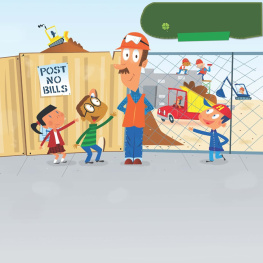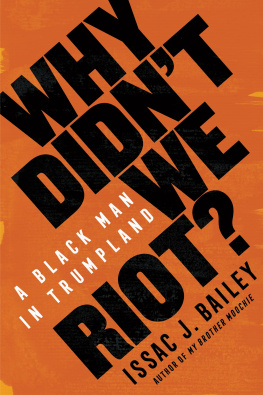Misery greets the planet. Social inequality has reached unbelievable levels where five individuals hold as much wealth as the bottom half of society. Climate change driven by capitalist expansionism threatens the vitality of our world. War of grotesque proportions comes amidst human-driven famine. It is as if the five horsemen of the apocalypse are no longer sufficient untold horsemen ride around the planet, suffocating the possibilities of human life.
One of the great downsides of our current inflation of atrocities is the sense that nothing other than this nightmare is possible. Alternatives cannot be imagined. Mockery pushes aside thinking about a different future. When these are attempted, as they always are by resilient humans, those in power strive to snuff them out. It is better for the powerful and the propertied to see that no model of an alternative is allowed to flourish. It would call into question the claim that what governs the world now is eternal, that History has ended.
T.M. Thomas Isaac and Michelle Williams have provided a detailed account of an alternative to the ghastly humanity diminishing system that dominates the world. This is a story of one cooperative the Uralungal Labour Contract Cooperative Society (ULCCS) in northern Kerala, which has thrived for the past nine decades to build a worker-driven enterprise for economic and social activity. An honest appraisal of a heroic venture, this book tells us that such cooperatives are not only able to survive in a small niche, but are able to grow into substantial institutions of the social life of a region. There are problems in the experience, and these are discussed with clarity. No sense in exaggerating the possibility of a cooperative that has to struggle to survive in a world where the capitalist law of value is the law of the land. But nonetheless, there is no sense in minimising the quite important contributions made by this Cooperative Society to the people who live in its area in material and spiritual terms. Now, thanks to Isaac and Williams, the story of this Cooperative Society is available not merely as an inspiration to the world, but as a guidebook to the resilience of cooperatives as alternatives within capitalism.
The ULCCS is most likely Indias oldest cooperative, which emerged importantly as part of the anti-caste movement in Kerala. The founders of this cooperative were workers the first president, Chappayil Kunjyekku Gurukkal was a mason. Till now, only workers can be directors of the ULCCS. The cooperative emerged in the construction sector, with a pledge as enshrined in its bylaws that the purpose of the ULCCS is to promote the economic interests of the labourers of the Society. Despite ups and downs, the ULCCS is a highly profitable cooperative and has been so even as the neoliberal policy slate has suffocated so much economic activity that is not harnessed for monopoly capitalism. The work of the cooperative has enhanced the lives of hundreds of families of the workers. The workers who manage the cooperative take their tasks seriously, meeting each evening as an example at 9 p.m. to fulfil their duties as directors. The rigour of this cooperative comes off on the pages of this book. It shows how seriously this enterprise is for the people, and how efficiently it competes against hierarchical firms.
In the ULCCS, the Left has an important alternative model of social growth to that championed by the neoliberal consensus in India. No need in this model to cannibalize the aspirations of people and to throw their hard-work to the mercy of the bottom-line. A close reading of this book shows how effective the ULCCS is in promoting a social form of economic activity against the pressures from dog-eat-dog competitive capitalism. In that regressive form of economic competition, the livelihood of the worker is the first to be dismissed as profit is enshrined as a god. The model of the ULCCS is in direct opposition to that approach.
People who are critical of the capitalist system often eschew books about alternatives that are being built within the parameters of the system because they argue that such institutions are captive to the systems logic. But this is a flawed assessment of cooperatives, which are in fact incubators of different logics of life and work and inspirations for what humans are capable of once the fetters of the capitalist law of value is transcended. In his third volume of Capital , Marx wrote,
The cooperative factories of the labourers themselves represent within the old form the first sprouts of the new, although they naturally reproduce, and must reproduce, everywhere in their actual organization all the shortcomings of the prevailing system. But the antithesis between capital and labour is overcome within them, if at first only by way of making the associated labourers into their own capitalist, i.e., by enabling them to use the means of production for the employment of their own labour. They show how a new mode of production naturally grows out of an old one, when the development of the material forces of production and of the corresponding forms of social production have reached a particular stage.
Marxs insight here is crucial. The cooperatives are not either inherently mired in the capitalist law of value or easily able to transcend it. They are sprouts, he writes, of an alternative, where the working-class is able to experiment with the annulment of capitalist management. Marx looked with great pride at the workers utopia being built in the Paris Commune of 1871. He saw the workers develop in the jubilation of setting aside the Second Empire of Louis Napoleon workers cooperatives and other means of building a new society. In his book on the Civil War in France , written during the Commune that lasted from March to May 1871, Marx wrote that the Commune was the form at last discovered for the future workers state. It was in this text that Marx wrote of the insights of the cooperatives,
If cooperative production is not to remain a sham and a snare; if it is to supersede the capitalist system; if the united cooperative societies are to regulate national production upon a common plan, thus taking it under their control, and putting an end to the constant anarchy and periodical convulsions which are the fatality of Capitalist production what else, gentlemen, would it be but Communism, possible Communism.
This book, then, is about possible Communism , the possibilities in our time of a future society.
Karl Marx, Capital. A Critique of Political Economy , New Delhi: LeftWord Books, 2010, Vol. 3, p. 440.
Karl Marx, The Civil War in France , Collected Works, Moscow: Progress Publishers, Vol. 22, p. 335.
Cooperatives have figured prominently in the left imagination for nearly two centuries. They have been viewed as important defensive struggles in the battle against capitalisms pernicious effects, In this book, we tell the story of a remarkable cooperative in northern Kerala the Uralungal Labour Contract Cooperative Society (ULCCS) that imbibes elements of all three of these positions, but most importantly has simply busied itself with helping change the lives of its members and their families as well as their communities. In this process, it has pioneered creative responses to questions of labour process, membership categories, ownership, modernization, and diversification. Ironically, one of its primary goals to help uplift the lives of its members has meant that the next generation have successfully moved upward out of construction, leading to a labour shortage for the Cooperative and a crisis of identity. What was the purpose of the Cooperative given these new changes? Over time the Cooperative realized that it needed to modernize and diversify not simply to stay alive, but more importantly, to create new types of jobs for the highly skilled generation coming to the fore. Our story tells the history of this 90-year journey from a construction cooperative to a diversified complex cooperative system that includes property development, IT infrastructure development, residential housing, and public works in which the Cooperative has maintained its values and principles.









